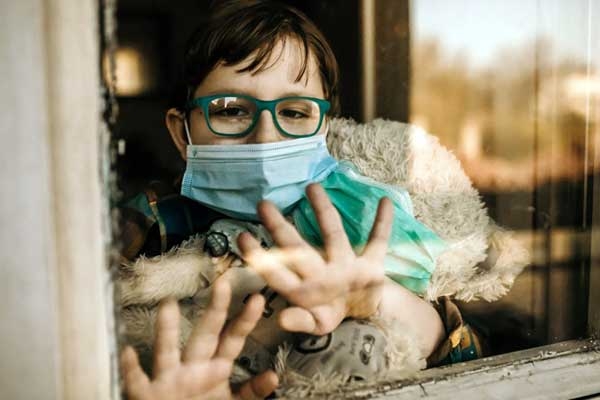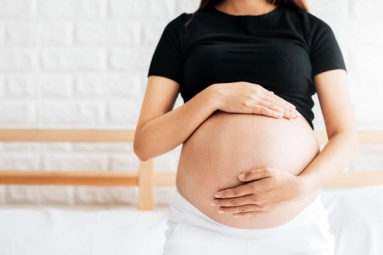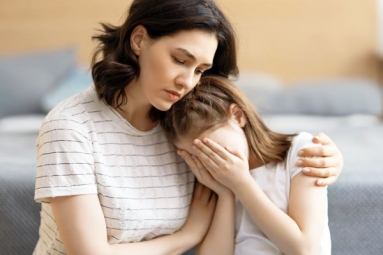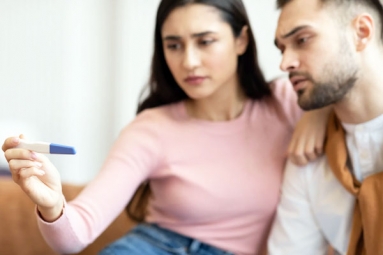
(Image source from: Canva.com)
Following a period of relative calm, COVID has re-emerged as a topic of discussion in the media, and it is natural for parents to feel a renewed sense of concern. Whether you're planning to travel internationally, reside in a bustling urban environment, or nurture your children in a smaller community, one fact remains clear: the safety of our children is our top priority. Dr. Kushal Agrawal, Head of the Department of Neonatology and Pediatrics at KVR Hospital in Kashipur, empathizes, stating, “As a pediatrician and a parent, I fully understand how perplexing and stressful this situation can be. Therefore, I would like to provide a straightforward, panic-free guide offering simple and practical steps to safeguard your children, without any complex medical terminology—just genuine advice."
What’s Happening Right Now?
The latest surge of COVID cases can largely be attributed to a new variant (such as JN.1). Although it spreads rapidly, most children experience mild symptoms, which include:
- Fever
- Cough or sore throat
- Runny nose
- Digestive distress in some instances
However, it’s important to note that infants, toddlers, and those with conditions such as asthma may face more severe illness, so exercising caution is advised.
Traveling with Children? Here’s How to Stay Safe:
Whether heading off for a vacation or attending a family function, travel increases exposure risk. Here are some safety tips:
When you're out and about:
- Help children aged 2 and older to wear a properly fitting mask
- Sanitize airplane or train seats before use
- Always carry hand sanitizer and tissues
- Minimize contact with shared surfaces and toys
In airports or hotels:
- Opt for flights during less busy times when possible
- Use room service instead of dining in crowded restaurants
- Verify that the hotel adheres to stringent cleaning protocols
Don’t forget to include in your packing:
- Digital thermometer
- Paracetamol syrup
- Oral rehydration solution (ORS)
- Oximeter
- Your child's vaccination record
- A contact list of pediatricians or healthcare facilities at your destination
Traveling Without Children? Keep Them Safe at Home
Traveling alone means you could unknowingly bring something back home. To ensure safety:
- Monitor yourself for any symptoms such as fever, aches, or a cough
- If you feel unwell in any way, keep your distance from your children
- Avoid close interactions like hugs or kisses until you are symptom-free
- Clean your luggage, clothes, phone, and other belongings before spending time with family
Living in a Metropolitan Area? Exercise Extra Caution
For those residing in major cities like Delhi or Mumbai, children are likely to come into contact with numerous individuals at school, on public transport, or during park outings. Here are some strategies to lower the risk:
- Teach your kids to wear masks properly, particularly in indoor settings
- Promote frequent handwashing, especially after school activities
- Disinfect their water bottles and lunch containers every day
- Monitor their interactions, especially with anyone who has traveled recently
- Inquire about your child's school protocols regarding cleanliness and air circulation
In Smaller Communities or Rural Areas? Stay Vigilant
Even in less populated locations, COVID can still be transmitted through:
- Festivals or family gatherings
- Visitors from urban areas or other countries
- Kids returning to school after breaks
Here are some recommendations:
- Educate your child about not sharing food, bottles, or towels
- Ensure that your nearby clinic or hospital offers pediatric services
Should your child be feeling ill, do not postpone taking them to a physician.
What Items Should You Have on Hand at Home?
Put together a basic COVID care kit:
Thermometer
Masks for children
Oximeter
Paracetamol (correct dosage for your child's age)
Hand soap and hand sanitizer
Oral rehydration solution (ORS)
Disinfectant wipes or spray for surfaces
Additionally, formulate a plan:
If your child becomes ill, try to place them in a separate room if feasible.
Utilize distinct plates, cups, and towels for their use.
Ensure windows are opened for ventilation.
When is It Essential to Contact a Doctor Immediately?
Be vigilant for:
Difficulty in breathing
A fever exceeding 102°F persisting for over three days
Indicators of dehydration (such as dry lips, absence of tears, decreased urination)
Skin rashes or severe fatigue
Any signs of illness in infants younger than three months:
Furthermore, check the websites of airlines and embassies before traveling, as regulations can change rapidly.
Stay Calm, Just Stay Prepared
Experiencing anxiety is understandable; we have all faced many challenges recently. However, it's important to remember that your mindfulness and daily actions, however small, can significantly impact the situation.







